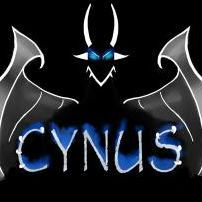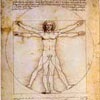Kung Fu And The Art Of Living
I shared this quote on the "Inspirational Quotes" forum a short while ago, and it was brought to my mind again in response to several of the comments on my last blog posting:
"If you one day make it back to the West, what will you tell men of this strange word, 'kung fu'? Will you tell them that it means to fight? Or will you say like a monk from Shaolin to summon the spirit of the crane and the tiger? Kung Fu. It means, 'supreme skill from hard work.' A great poet has reached kung fu. The painter, the calligrapher they can be said to have kung fu. Even the cook, the one who sweeps steps or a masterful servant can have kung fu. Practice. Preparation. Endless repetition. Until your mind is weary, and your bones ache. Until you're too tired to sweat, too wasted to breathe. That is the way, the only way one acquires kung fu." -Hundred Eyes, "Marco Polo"
I want to expand on my view of what "Life is meant to be art, and most treat it as work" means to me. There are many necessary things in life, that are unpleasant, uncomfortable, and are, quite simply, mundane. We still have to do the laundry. We still have to wash dishes, or do paperwork. How do we make these things into an art rather than work? I believe that's where the philosophy of Kung Fu comes into play.
My first job, which I acquired several weeks after my sixteenth birthday, was in a restaurant washing dishes. Our restaurant, although it served a full menu of food, was specialized in ice cream, which we served in all manner of glass dishes. Our job as the dishwashers, was to clean these glass dishes that were covered in gooey melted ice cream. It was a messy job, it was a wet job, and it was fast-paced. If you didn't move quickly then the piles of dirty dishes would back up and before you knew it you'd be overwhelmed.
At first, I hated this job. I couldn't stand going home soaking wet and smelling like rancid ice cream. I hated having my bosses riding my back and telling me that we needed more clean of some dish that was buried beneath mountains of other dirty dishes. I would have never expected that I'd come to enjoy it.
But I did.
The job transformed gradually. As I continued to work, I became more practiced at methods which helped us get the job done more quickly. I learned how to set myself up for success rather than failure through careful preparation, as instead of washing one dish at a time I learned how to line them up in such a way that I could wash many of them all at once. These and other skills I acquired helped me grow as a dishwasher, and eventually I became one of the best that we had. Through constant exposure to the task, countless repetitions of the movements required, I could do these things as if they were a second nature to me. At the beginning of my six months in that dish room, I was a teenager with no respect for anything. At the end of it, even when I'd go home tired, weary, wet, and smelling like spoiled milk, I felt like I was accomplishing something, because I had been able to turn my work into an art.
Practice. Preparation. Endless Repetition. Until your mind is weary, and your bones ache. Until you're too tired to sweat, too wasted to breathe. That is the way that we make the mundane into something extraordinary. It doesn't matter if you're a writer, lawyer, painter, executive, or the cashier at McDonald's. All work can become art, for all work can grant you "supreme skill from hard work". Every mundane task can become an art form.
Sometimes, when I'm washing dishes, I remember those nights in the dish room, and I can't help but smile. Not much is better than fond memories made from simple pleasures of a job well done.
-
 4
4








3 Comments
Recommended Comments
Create an account or sign in to comment
You need to be a member in order to leave a comment
Create an account
Sign up for a new account in our community. It's easy!
Register a new accountSign in
Already have an account? Sign in here.
Sign In Now